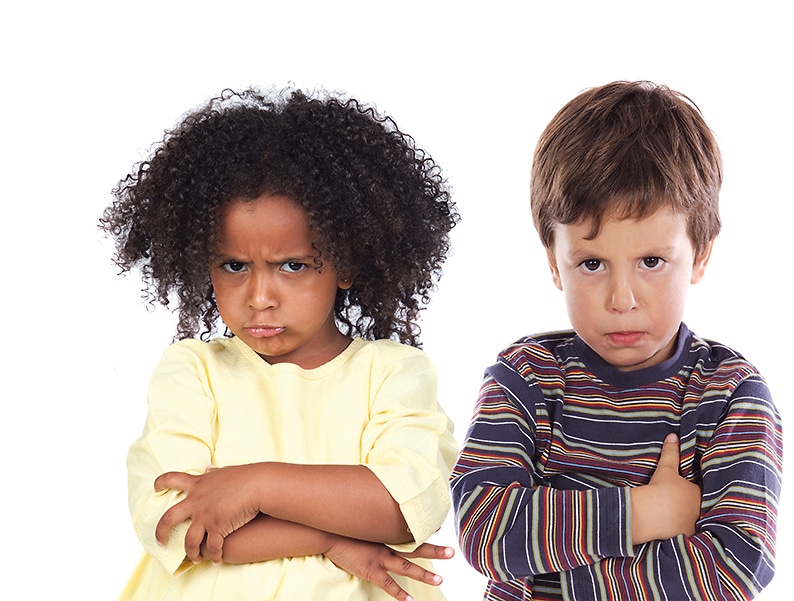
Child Behavior
Sarah Murray is a Paediatric Board Certified Behaviour Analyst (BCBA). Her practice is based in county Cork but she works online supporting many families. Sarah specialises in early intervention for infants and young children, with almost a decade of experience working alongside families of children with developmental delays, autism, and intellectual disability. A child behavioural consultant, Sarah helps families and schools to address challenging behaviour in a positive manner using evidence-based intervention strategies.
arahmurrayabatherapy.com

Paediatric Behaviour Analyst Sarah Murray discusses the controversial topic of punishment and managing misbehaviour in children
The term ‘spare the rod and spoil the child’ has done a lot of damage in guiding healthy parenting practices. Punishment is now widely misunderstood, misused and overused when it comes to changing child behaviour. It does have some effects, but these effects are limited and come with a ream of unwanted side effects, calling into question whether it is even worth utilising. Many families seek out my guidance on how best to respond to unwanted behaviours that they see in their children. However, my work centres on proactive approaches to misbehaviour and skills teaching replacement behaviours to ensure that misbehaviour is less likely to occur in the first place and thus, discipline is deemed unnecessary.
Punishment can range from shouting, verbalising harsh statements, to removal of privileges and time outs. Really, any form of reactionary consequence after a child has misbehaved. Technically, punishment (in the world of behaviourism) is anything that follows a (mis)behaviour that decreases the likelihood of that behaviour happening again in the future. Parents can penalise child behaviour for a multitude of reasons – to seek justice, to teach respect to authority, to show who is in control, (does “because I said so” sound familiar?) and more importantly, to teach children right from wrong. However, in the moment may not be the best time to teach these things!
We are hard-wired to only notice the negatives, to only notice when things go wrong, and it is human nature to also automatically revert to discipline as the primary means of responding to unwanted behaviour. We are all too often overly responsive to misbehaviour, and irresponsive to good behaviour. However, when it comes to addressing misbehaviour, we need to work against our natural tendencies in order to notice, promote and encourage more positive behaviours in order to decrease unwanted behaviours.
Punishment only serves to teach children what not to do and in my work with children exhibiting unwanted behaviour, the focus needs to be on teaching them what is seemingly so obvious to us adults – what to do instead. Instead of biting, ask for it back, instead of pushing, say “no it’s not your turn”, instead of throwing, ask for help. This is where the skills teaching comes into play.
Some things to note about punishment:
1. Punishment suppresses the behaviour in the moment, but does not have long term effects (unless you teach a positive opposite behaviour to replace it with – see below for more on this).
2. When your child is upset at your punishment (be this shouting, scolding and so on), don’t confuse this with effective punishment. What you are seeing is a genuine upset child and he or she may very well carry on and do the same thing again in the future, therefore, your punishment was only effective to stop the misbehaviour in the short term, and not the long term. If you find yourself stuck in a cycle of misbehaviour-punishment-cessation-repeat, then your punishment is not working.
3. Don’t fall into the punishment trap. As mentioned above, the cycle that you can get stuck in can lead to parents using punishment more and more often, as it stops misbehaviour in the moment. This is one pitfall in the punishment trap. Another is using punishment more harshly. Children habituate to things a lot faster than us adults and they can get quite used to the level of punishment you dole out and the effectiveness in the short term can wear off, so what do you do? You amp it up. No longer are you shouting, but also taking away toys, increasing minutes in time out and so on and then you achieve the same effects – short term misbehaviour cessation, and the cycle continues with added frequency and intensity of punishment mixed in the loop.
4. Mild and properly used discipline can have positive effects when coupled with the strategies listed below, but it can fail in certain ways. The biggest one is when the reactionary consequence does not immediately follow after the misbehaviour occurred. An example of this would be stealing. Your child steals something and gains instant gratification, and may not be noticed for this until a couple of days later. By this time, how you address this behaviour will be ineffective (a reason why the individuals who break the law and are caught at a later date often go on to be repeat offenders). If only eating the cake put you up on the scales instantly – we wouldn’t do it! The punishing consequences are too far removed from the behaviour.
5. Punishment has some nasty side effects. Children get quite distressed, upset and angry, which will in turn break relations between adult and child. A wedge between child and adult is not conducive to the strategies outlined below. Another unwanted side effect is that children will punish their peers the same way they have been punished. Bear this in mind when you feel like physically punishing your child, as this has been shown within the research that can translate to your child being more physical and aggressive toward their peers. Punishment can also serve to escalate things in the moment, leading us down another path to arriving at the destination of the punishment trap, amping up what you dish out.
Some tips to assist with misbehaviour that I would recommend are these proactive strategies and, if you are going to discipline your child (which I personally and professionally deem unnecessary with the right set up and supports), some things to note:
Catch your child being good: Children will typically not always respond with misbehaviour within a given context every single time (for example they will sometimes share, but not always). Catch your child actively sharing and praise them in the moment! Praise behaviour, the specifically “great sharing”; and not the child specifically “you are so kind”. We want to promote the behaviour and not deflect back to the child, because when and if things go badly, this can have a huge impact on self-esteem of the child and inadvertently send a message that I didn’t share therefore I am not a kind person.
Promote positive opposites: What is the opposite to the misbehaviour that you are seeing? You already know what you want your child to stop doing, but what would you like to see your child do in its stead? Determine the positive opposite, promote and encourage it, (specifically teach it if you have to) and reinforce this positive opposite. This will see you get a lot further down the track than punishment will. Rather than punishing ‘not sharing’, praise, acknowledge and reward sharing, making this behaviour more likely to occur as time goes by, and thus not sharing will begin to naturally decrease.
Give your child notice: Tell your child exactly what behaviours you want to see less of and what behaviours you want to see more of, and focus in heavily on those ‘want to see more of’ behaviours. Throw everything good you got at it to make it grow and strengthen. When a behaviour occurs that you want to see less of, you can either ignore it or discipline it, but do so mildly, briefly and in a calm and controlled manner. The punishment should absolutely ‘not’ fit the crime. One minute in time out is perfectly fine, ten minutes is not! You may feel like the scales are disproportionate but I can assure you, plenty of research shows us that mild and brief is just as effective and harsh and long.
Do not discipline when you are angry: Being rational and calm in the moment will assist you with how to address misbehaviour after is has occurred. The way in which you respond to difficulty will be modelled to your child for teaching them how to respond to difficulty. Of course, parents are human, they get mad, but in the moment is not the right time to teach your child how to deal with an angry adult. When you are angry you can lose sight of your judgement and what technique to use. Also recognise that some children like to push your buttons and get this reaction from you, so reacting hot headed may very well serve to strengthen their misbehaviour in the future to get the same response from you. Your best bet is to remain calm even if you are boiling up on the inside!
Do not threaten a punishment: “Do that once more and you won’t be going to the party”. One warning will suffice and once you issue this statement, you will then have to follow through with it, so be careful and ask yourself before you threaten “can I follow through with this”? Repeatedly dishing out warnings lose their effectiveness if not followed through on, so say what you mean and mean what you say.


